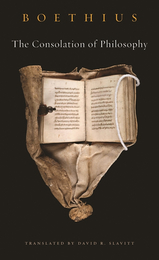
In this highly praised new translation of Boethius’s The Consolation of Philosophy, David R. Slavitt presents a graceful, accessible, and modern version for both longtime admirers of one of the great masterpieces of philosophical literature and those encountering it for the first time. Slavitt preserves the distinction between the alternating verse and prose sections in the Latin original, allowing us to appreciate the Menippian parallels between the discourses of literary and logical inquiry. His prose translations are lively and colloquial, conveying the argumentative, occasionally bantering tone of the original, while his verse translations restore the beauty and power of Boethius’s poetry. The result is a major contribution to the art of translation.
Those less familiar with Consolation may remember it was written under a death sentence. Boethius (c. 480–524), an Imperial official under Theodoric, Ostrogoth ruler of Rome, found himself, in a time of political paranoia, denounced, arrested, and then executed two years later without a trial. Composed while its author was imprisoned, cut off from family and friends, it remains one of Western literature’s most eloquent meditations on the transitory nature of earthly belongings, and the superiority of things of the mind. In an artful combination of verse and prose, Slavitt captures the energy and passion of the original. And in an introduction intended for the general reader, Seth Lerer places Boethius’s life and achievement in context.
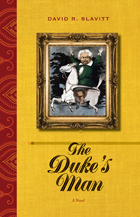
Focusing on one aspect of Dumas’ novel—the doomed love story of Bussy d’Amboise and Diana de Monsoreau—Slavitt excerpts key passages, which are extended and undercut by the narrator’s comments. The result is a radically abridged book with its own life and verve. The first of the quoted scenes, in which the names of Bussy’s assailants are replaced with those of French cheeses, sets the irreverent tone for all that follows. The book pokes fun at Dumas’ exclamatory style and flamboyant archaisms (“morbleu!” “pardieu!”), the implausibility of the swordfights, the unnecessary contortions of the political plot, the conventional passivity of the heroine, and the coyness of his love scenes. Residing somewhere between Nabokov’s Pale Fire and Quirk Books’ mash-ups (Pride and Prejudice and Zombies, etc.), The Duke’s Man’s blend of quotation, commentary, and fiction raises searching questions about realism and truth.

Originally published in 1961, this shrewd, smartly written novel follows two American men traveling in Europe. Though both have struck out for the same continent, each man’s methods of and motives for travel lead him to have a very different experience than the other. Underlying it all is the premise that Europe--the contrast, the otherness of it--can be a refiner’s fire, deeply affecting a person’s character. Europe represents a crucial step in Stern’s development as a writer and stands as a witty, sharp point of entry into his writings and the writings of novelists who rose to prominence in the 1960s.

Taking its inspiration from Sanders’s own autobiography Memoirs of a Professional Cad (1960), this book is part witty, bawdy, and irreverent memoir, part moving meditation on the price of fame; like most of David Slavitt’s work, it defies easy categorization.In George Sanders, Zsa Zsa, and Me, Slavittlooks back to his career as a film critic in the glamorous—at least superficially—world of 1950s Hollywood, when he traveled in circles that included the talented British actor George Sanders (1906–1972) and his then-wife, Zsa Zsa Gabor, who was talented at, well, being famous.
Sanders, who seemed to maintain an ironic detachment from roles that were often beneath him, nonetheless couldn’t bear the decline of his later years and committed suicide at the age of sixty-five. Darkly humorous to the end, his note read, "Dear World, I am leaving because I am bored. I feel I have lived long enough. I am leaving you with your worries in this sweet cesspool. Good luck." Zsa Zsa, on the other hand, remains in the headlines (with her dubiously named husband Frédéric Prinz von Anhalt) at age ninety-two. Although he punctuates his story with witty asides—the author’s encounter with Marilyn Monroe is particularly memorable—Slavitt turns a critic’s eye toward questions of talent and art, while also tackling the difficult and universal questions of aging, relationships, and mortality.
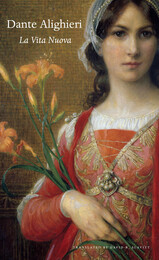
La Vita Nuova (1292–94) has many aspects. Dante’s libello, or “little book,” is most obviously a book about love. In a sequence of thirty-one poems, the author recounts his love of Beatrice from his first sight of her (when he was nine and she eight), through unrequited love and chance encounters, to his profound grief sixteen years later at her sudden and unexpected death. Linked with Dante’s verse are commentaries on the individual poems—their form and meaning—as well as the events and feelings from which they originate. Through these commentaries the poet comes to see romantic love as the first step in a spiritual journey that leads to salvation and the capacity for divine love. He aims to reside with Beatrice among the stars.
David Slavitt gives us a readable and appealing translation of one of the early, defining masterpieces of European literature, animating its verse and prose with a fluid, lively, and engaging idiom and rhythm. His translation makes this first major book of Dante’s stand out as a powerful work of art in its own regard, independent of its “junior” status to La Commedia. In an Introduction, Seth Lerer considers Dante as a poet of civic life. “Beatrice,” he reminds us, “lives as much on city streets and open congregations as she does in bedroom fantasies and dreams.”

Widely praised for his recent translations of Boethius and Ariosto, David R. Slavitt returns to Ovid, once again bringing to the contemporary ear the spirited, idiomatic, audacious charms of this master poet.
The love described here is the anguished, ruinous kind, for which Ovid was among the first to find expression. In the Amores, he testifies to the male experience, and in the companion Heroides—through a series of dramatic monologues addressed to absent lovers—he imagines how love goes for women. “You think she is ardent with you? So was she ardent with him,” cries Oenone to Paris. Sappho, revisiting the forest where she lay with Phaon, sighs, “The place / without your presence is just another place. / You were what made it magic.” The Remedia Amoris sees love as a sickness, and offers curative advice: “The beginning is your best chance to resist”; “Try to avoid onions, / imported or domestic. And arugula is bad. / Whatever may incline your body to Venus / keep away from.” The voices of men and women produce a volley of extravagant laments over love’s inconstancy and confusions, as though elegance and vigor of expression might compensate for heartache.
Though these love poems come to us across millennia, Slavitt’s translations, introduced by Pulitzer Prize winner Michael Dirda, ensure that their sentiments have not faded with the passage of time. They delight us with their wit, even as we weep a little in recognition.
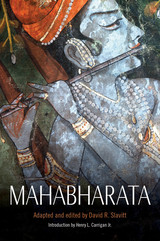
Within its 200,000 verse lines in Sanskrit the Mahabharata takes on many roles: epic poem, foundational text of Hinduism, and, more broadly, the engaging story of a dynastic struggle and the passing of an age when man and gods intermingled. David R. Slavitt’s sparkling new edition condenses the epic for the general reader.
At its core, the Mahabharata is the story of the rivalry between the Pandavas and the Kauravas, two related noble families who are struggling for control of a kingdom in ancient northern India. Slavitt’s readable, plot-driven, single-volume account describes an arc from the conception and birth of Bhishma to that hero's death, while also introducing the four goals of life at the center of Hinduism: dharma (righteousness, morality, duty), artha (purpose), kāma (pleasure), and moksa (spiritual liberation). The Mahabharata is engaging, thrilling, funny, charming, and finally awesome, with a range in timbre from the impish naivete of fairy tales to the solemnity of our greatest epics, and this single-volume edition is the best introduction available.
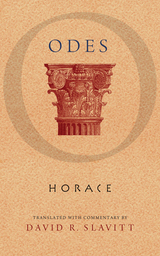
This edition is also notable for Slavitt’s extensive notes and commentary about the art of translation. He presents the problems he encountered in making the translation, discussing possible solutions and the choices he made among them. The effect of the notes is to bring the reader even closer to the original Latin and to understand better how to gauge the distance between the two languages.
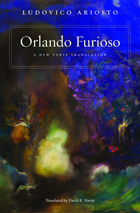
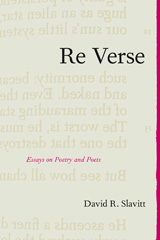
Combining personal reminiscence with deft literary analysis, incisive biographical sketches, and, sometimes, literary gossip, these essays give new perspectives on the famous--such as Harold Bloom, Robert Penn Warren, Robert Frost, and Stephen Spender--and recover the charms of the near-forgotten--such as Dudley Fitts, Winfield Townley Scott, Merrill Moore and John Hall Wheelock. Slavitt writes with self-deprecating humor of his own literary education, and uses his impressive experience and erudition to illuminate the whims of poetic influence, passion, and reputation. With a refreshing honesty and considerable poise, he gives readers an enlightening view of the vast and ever-changing literary universe.
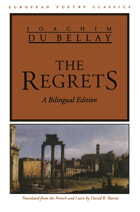
As a member of the mid-sixteenth-century literary group La Pléiade, Joachim du Bellay sought to elevate his native French to the level of the classical languages—a goal pursued with great spirit, elegance, irony, and wit in the poems that comprise The Regrets. Widely viewed as one of the finest sonnet sequences in all of French literature, this Renaissance masterpiece wryly echoes the homesickness and longing of Ovid's poetry written in exile—because du Bellay finds himself lost in Rome, the very home Ovid longed for. In this translation by David R. Slavitt, these brilliant performances retain their original formal playfulness as well as their gracefully rendered but nonetheless moving melancholy. In decadent Rome, among hypocrites, thieves, and snobs, du Bellay uses his poetry as an opportunity for social satire and caustic self-criticism-it becomes a salvation of sorts, an approach peculiarly modern in its blending of the classical, the social, and the personal.
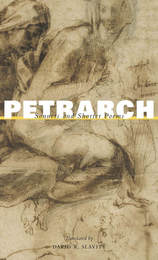
In this volume, David R. Slavitt, the distinguished translator and author of more than one hundred works of fiction, poetry, and drama, turns his skills to Il Canzoniere (Songbook) by Petrarch, the most influential poet in the history of the sonnet. In Petrarch’s hands, lyric verse was transformed from an expression of courtly devotion into a way of conversing with one’s own heart and mind. Slavitt renders the sonnets in Il Canzoniere, along with the shorter madrigals and ballate, in a sparkling and engaging idiom and in rhythm and rhyme that do justice to Petrarch’s achievement.
At the center of Il Canzoniere (also known as Rime Sparse, or Scattered Rhymes) is Petrarch’s obsessive love for Laura, a woman Petrarch asserts he first saw at Easter Mass on April 6, 1327, in the church of Sainte-Claire d’Avignon when he was twenty-two. Though Laura was already married, the sight of her woke in the poet a passion that would last beyond her premature death on April 6, 1348, exactly twenty-one years after he first encountered her. Unlike Dante’s Beatrice—a savior leading the poet by the hand toward divine love—Petrarch’s Laura elicits more earthbound and erotic feelings. David Slavitt’s deft new translation captures the nuanced tone of Petrarch’s poems—their joy and despair, and eventually their grief over Laura’s death. Readers of poetry and especially those with an interest in the sonnet and its history will welcome this volume.
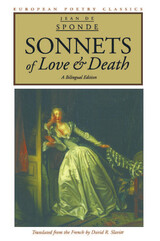
READERS
Browse our collection.
PUBLISHERS
See BiblioVault's publisher services.
STUDENT SERVICES
Files for college accessibility offices.
UChicago Accessibility Resources
home | accessibility | search | about | contact us
BiblioVault ® 2001 - 2024
The University of Chicago Press









